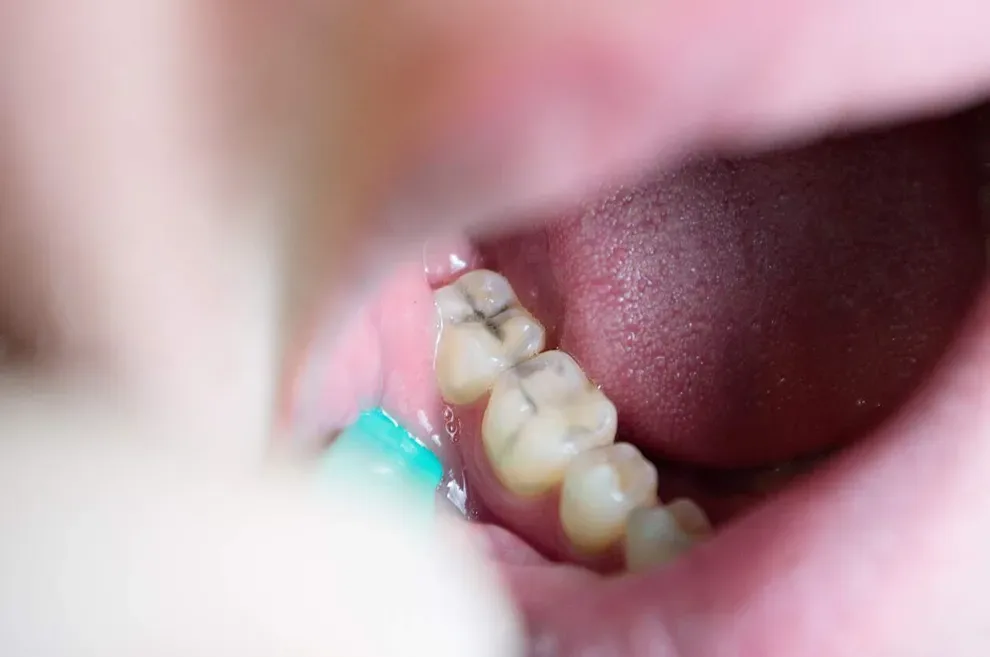Filling Your Cavity at Home: Why Homemade Fixes Don't Work

Table of Contents
- Alternative Ways of Fixing Cavaties
- Phytic Acid & Licorice Root
- Why Homemade Fixes Don't Work
- Why Dentists Should Treat Cavities
- How to Prevent Cavities
While it is technically possible to fill a cavity at home, it is not wise or safe. Cavities should be filled by a dentist in a professional setting.
Attempting a homemade fix for a cavity can result in permanent damage to your teeth and mouth as well as infection and other serious issues.
Alternative Ways of Fixing Cavities
One reason people prefer alternative ways of fixing their cavities is because they are hesitant to use certain chemical products, like fluoride. There are a few methods, originating in complementary and holistic medicine that are occasionally cited as workarounds for not using fluoride. None of these can actually work as a replacement for fillings.
This is based on Ayurveda, an ancient form of alternative medicine. People rinse their mouths with a tablespoon of coconut or sesame oil.
Oil pulling is not widely supported by scientists and dentists, but it can improve dental health in some patients. In 2009, the Indian Journal of Dental Research wrote that oil pulling with sesame was just as effective as mouthwash in reducing the amount of plaque-forming bacteria.
This can be purchased in the form of tooth gel, and it can fight the bacteria that causes cavities. Aloe vera has antibacterial properties that can kill harmful bacteria in the mouth and on the surface of teeth, according to the Journal of Pharmacy and BioAllied Sciences.
Researchers have suggested that aloe vera might not be enough to treat a cavity once it has formed, but that it may help to reinforce enamel with vital minerals, slowing down the formation of cavities.
Phytic Acid & Licorice Root
There is evidence that phytic acid can damage tooth enamel, so some people cut it out of their diets in the hope of preventing tooth decay and cavities. This entails not eating maize, wheat, rice, and dozens of different kinds of beans. There is not yet a scientific consensus on whether eliminating foods containing phytic acid is effective in preserving the minerals in tooth enamel.
In 2013, Nutrition Reviews wrote that vitamin D supplements were useful in reducing the rate at which cavities developed. Researchers theorized that the vitamin strengthened tooth enamel by means of a mineralizing effect.
Other home measures of blunting the effects of cavities include eating licorice root and chewing sugar-free gum after meals. Neither method is universally accepted as being particularly effective at completely stopping the development of cavities, but there is anecdotal support for their use.
The goal of a filling is to restore your tooth for the foreseeable future, and when done by a trained dentist, a silver filling may last 15 to 20 years.
Why Homemade Fixes Don't Work
It is not a good idea to attempt to fill a cavity at home without a dentist’s help.
Filling a cavity entails cleaning out the infection and sanitizing the affected tooth — steps that cannot be easily done with home-based or alternative materials (and not in an uncontrolled, unsterilized environment like a private residence). If a cavity is not fully and properly filled, it can cause an infection so severe that the entire tooth structure (root and all) has to be removed.Additionally, DIY fillings will eventually and inevitably come loose due to constant movement from chewing, clenching the jaw, or simply talking. The fillings can be worn down, chipped, or cracked, exacerbating the overall cavity problem. For example, if the seal between the filling and tooth enamel is damaged, bacteria and food particles can get under the filling and increase the rate of the tooth decay. After a certain point, the decay cannot be addressed with a homemade fix. Ultimately, this makes necessary dentist visits at this point much more expensive than they would have been if a traditional filling was used instead.Improvised fixes to treat and fill cavities will likely not have any long-term benefit on the health of your teeth. They might even cause further damage without proper medical intervention.
Why Dentists Should Treat Cavities
Dentists explain that a cavity is a permanent form of tooth damage that cannot be adequately addressed by home remedies. They require the attention of a dental professional. One of the reasons for this is that a dentist has access to equipment and materials that can properly fill a cavity. For example, numbing gel and local anesthesia are needed to minimize pain during the procedure. There should be a drill to clean out the infected part of the tooth. There will be restoration materials needed as well to return the tooth to its original shape.
And there are many filling materials, like amalgam or white composite fillings, which cannot be easily obtained by a private individual. Lastly, there is the vital component of training and experience. A dentist has the skill to finish filling a cavity in a way that a person cannot do on their own, especially in a nonclinical setting. Dentists know how to make the shape of the filling conform to the original tooth and biting surface.
When done properly, a filling can last for as long as 20 years. A DIY approach will not last anywhere near this long. Dental drills can look scary, but a well-done filling is safe, effective, and long-lasting. It is a very common dental procedure. It is well worth the investment to protect your teeth and gums from decay, pain, and other problems.
How to Prevent Cavities
If you want to avoid getting fillings at the dentist’s office, the best option is not getting cavities in the first place.
There are many steps you can take to avoid decay and cavities, including these:
Maintain a good oral hygiene routine. A diligent dental care protocol can go a long way in ensuring you don’t need any fillings. Proper care should include brushing twice a day (with a fluoride toothpaste), flossing daily, and using an antimicrobial mouthwash.
Eat a balanced and healthy diet. Sugary and starchy foods can encourage bacteria growth and plaque buildup. A wholesome diet will give you the vitamins and minerals for strong teeth and gums.
Drink more water. Water acts as a cleanser for teeth, rinsing off bacteria and particles. It also hydrates the gums and helps to prevent dry mouth, which can lead to decay.
Correct teeth misalignments (malocclusion). Crooked teeth or a bad bite can create friction between teeth and wear away at the enamel. Malocclusion can also make it harder to properly clean teeth, as crowding and gaps can create hard-to-reach areas or open areas of gum that can accumulate plaque.
Keep up with regular dentist appointments. Regular cleanings can prevent plaque and tartar build up, and they can also make sure that any issues are addressed before they turn into bigger problems.
